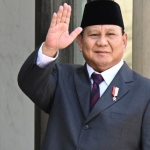
In Indonesia, a country deeply rooted in tradition and family values, the institution of marriage is experiencing a transformation. A closer look reveals a complex interplay of factors influencing Indonesians’ attitudes towards marriage.
Changing Marriage Patterns
- Age Gap: Traditionally, Indonesian women married older men, but recent data suggests that the age gap is narrowing, with the average difference now around 4.5 years.
- Education: There’s a trend towards educational homogamy, where couples have similar levels of education. This shift indicates more egalitarian prospects in marriage.
The Details
- Demographic Trends: The average age at first marriage is rising, with many young adults postponing marriage to pursue education and career goals.
- Urbanization: As more Indonesians move to cities, they adopt lifestyles that often delay or deprioritize marriage.
Societal Consensus
While there’s no unanimous consensus, a growing number of Indonesians, particularly in urban areas, view marriage as one option among many for personal fulfillment and social stability.
Government Initiatives
- Minimum Age for Marriage: The Indonesian parliament raised the minimum age for women to marry from 16 to 19 years old, aiming to curb child marriage and allow girls to complete their education.
Keep Reading
The Whys
- Economic Independence: Increased access to higher education and the job market, especially for women, has led to greater financial independence, reducing the economic incentive to marry early.
- Changing Social Norms: There’s a shift in societal expectations, with greater acceptance of singlehood and alternative family structures.
- Government Policies: Efforts to raise the legal age of marriage and promote gender equality are reshaping the traditional narrative around marriage.
Cultural Perspectives
- Religious Considerations: Despite the shifts, religion remains a significant factor in marriage decisions, with many Indonesians adhering to cultural and religious norms that favor marriage.
- Family Pressure: Family expectations still play a crucial role, with many individuals feeling societal pressure to marry, despite personal reservations.
The landscape of marriage in Indonesia is not about giving up on the institution but rather redefining it in a modern context. As Indonesians navigate these changes, the essence of marriage as a social contract remains, albeit with new dimensions and considerations.




























